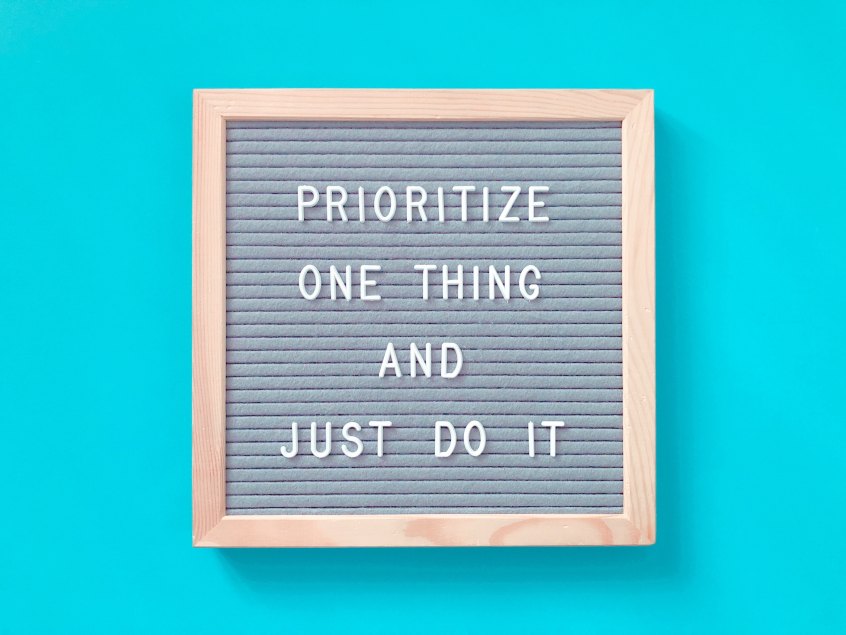In the rapidly evolving world of project management, Scrum has emerged as a highly effective framework for agile development. At the heart of this methodology is the role of the Scrum Master, a key facilitator responsible for guiding teams toward successful project delivery.
However, being a Scrum Master goes beyond just holding the title; it requires a diverse skill set and a deep understanding of agile principles. In this article, we will explore the eight most crucial Scrum Master skills that you need to master to excel in this role.
Whether you’re a seasoned Scrum practitioner or just starting your journey, this comprehensive guide will provide valuable insights to help you thrive as a Scrum Master. So, let’s dive in and uncover the essential skills that will empower you to lead high-performing teams and drive successful project outcomes.
1. Effective Facilitation and Communication
As a scrum master, one of the most vital skills you must master is effective facilitation and communication. This skill encompasses creating a collaborative and open environment where team members can effectively communicate, exchange ideas, and work towards a common goal.
A scrum master with strong facilitation and organizational skills who can conduct productive meetings, such as daily stand-ups, sprint planning, and retrospectives. They ensure that all team members have an equal opportunity to contribute, actively listen to different perspectives, and foster a safe space for open dialogue.
Furthermore, effective communication plays a pivotal role in conveying project requirements, goals, and progress to stakeholders and within scrum teams. A skilled scrum master understands the importance of adapting their communication style to different audiences, ensuring clear and concise messages that resonate with stakeholders and other Scrum team members.
By effectively communicating within the scrum framework, the scrum master facilitates a shared understanding among team members and stakeholders, fostering collaboration and enabling the successful delivery of project outcomes.
2. Proficiency in Team Coaching and Leadership
Another critical skill for scrum masters to master is team coaching and servant leadership proficiency. As a scrum master, you guide and empower your team members to achieve their highest potential.
Effective team coaching involves understanding the strengths and weaknesses of each team member and providing guidance and support tailored to their individual needs. A skilled scrum master creates a collaborative and inclusive environment that encourages team growth, learning, and self-organization.
Moreover, strong leadership skills are essential for a scrum master to inspire and motivate the team. A successful scrum master leads by example, demonstrating integrity, accountability, and a commitment to agile principles. They foster a culture of trust and respect, where team members feel empowered to take ownership of their work and make decisions.
Furthermore, a proficient scrum master facilitates team dynamics, encouraging collaboration and promoting a sense of shared purpose. They ensure that team members clearly understand project goals and objectives, helping them stay focused and aligned toward achieving them.
In addition to their coaching skills and leadership, a skilled scrum master also serves as a servant-leader, supporting the team by removing impediments and advocating for their needs. They act as a bridge between the team and stakeholders, facilitating effective communication and managing expectations.
Want to elevate your team’s agile journey with a seasoned scrum master?
Contact Growth Hackers
3. Strong Problem-Solving and Decision-Making Abilities
As a scrum master, possessing strong problem-solving and decision-making abilities is crucial for overcoming obstacles and guiding your team toward successful project delivery. You will encounter various challenges throughout the project lifecycle, and your ability to analyze complex situations, identify root causes, and propose effective solutions is paramount.
A skilled scrum master approaches problems with a systematic and analytical mindset. They gather relevant data, collaborate with team members, and employ agile methodology techniques such as root cause analysis and brainstorming to identify potential solutions. They are adept at breaking down complex problems into manageable components and prioritizing them based on impact and urgency.
In addition to problem-solving, making timely and informed decisions is equally important. A proficient scrum master evaluates available options, considers input from stakeholders and team members, and uses their expertise and judgment to make sound decisions aligned with project objectives.
Furthermore, strong problem-solving and decision-making abilities go hand in hand with being open to experimentation and learning from failures. A skilled scrum master embraces a mindset of continuous improvement, using setbacks as opportunities to reflect, adapt, and refine their problem-solving and decision-making approaches.
4. Adaptive Planning and Prioritization Skills
As a scrum master, having adaptive planning and prioritization skills is essential for effectively managing projects in dynamic and evolving environments. Agile methodologies, including scrum, emphasize flexibility and responsiveness, requiring a scrum master to be skilled at adapting plans and prioritizing tasks based on changing circumstances.
Adaptive planning involves creating a roadmap that outlines the project’s goals and key deliverables while allowing for flexibility and adaptation as new information emerges. A proficient scrum master collaborates with the product owner and team members to define the scope of work for development teams for each iteration or sprint, breaking it down into manageable tasks and estimating their effort. They continuously reassess and adjust plans to accommodate evolving requirements and priorities.
Prioritization skills are equally important as a scrum master. With multiple tasks and competing demands, it is crucial to identify and prioritize work based on its value, urgency, and dependencies. A skilled scrum master collaborates with the product owner and stakeholders to understand business priorities and user needs, ensuring that the most valuable work is addressed first.
Moreover, adaptive planning and prioritization require effective time management and balancing short-term goals with long-term objectives. A proficient scrum master understands the importance of meeting deadlines and milestones while considering the overall project vision and strategic goals.
5. Ability to Foster Collaboration and Empowerment
The ability to foster collaboration and empowerment is a critical skill for scrum masters as it creates an environment that maximizes the entire team’s potential. Collaboration ensures team members work cohesively, leveraging their diverse skills and perspectives to deliver exceptional results.
A skilled Scrum Master promotes collaboration by facilitating effective communication channels within the team. They encourage open and transparent communication, ensuring information flows freely among team members. By fostering a culture of active listening and respect, they create a safe space for everyone to contribute their ideas and opinions.
In addition to communication, a proficient scrum master fosters collaboration through various agile practices and techniques. They facilitate collaborative meetings, such as sprint planning and retrospectives, where team members actively engage in discussions, share insights, and collectively make decisions. They also encourage pair programming, peer code reviews, and cross-functional training, enabling knowledge sharing and skill development among team members.
Furthermore, empowering the team is essential to the scrum master’s role. A skilled scrum master understands that empowered individuals take ownership of their work, make informed decisions, and contribute to the project’s overall success. They support the team by using hard skills, providing autonomy, removing obstacles, and trusting them to deliver results.
6. Skillful Stakeholder Management
Skillful stakeholder management is crucial for scrum masters as it enables effective collaboration and ensures alignment between the project team and external stakeholders. Stakeholders play a vital role in project success, and a skilled scrum master knows how to identify, engage, and manage their expectations throughout the project lifecycle.
Effective stakeholder management starts with identifying key stakeholders and understanding their needs, interests, and influence on the project. A proficient scrum master proactively communicates with stakeholders, informing them about project progress, risks, and changes. They establish clear channels for feedback and ensure that stakeholder input is considered during decision-making processes.
Moreover, a skilled scrum master is a liaison between the development team and stakeholders, translating technical jargon into clear, concise information that stakeholders can understand. They facilitate collaborative discussions, resolve conflicts, and negotiate compromises when necessary.
In addition, a proficient scrum master understands the importance of building and maintaining strong relationships with stakeholders. They invest time in understanding stakeholders’ motivations, concerns, and expectations, fostering trust and credibility. They can leverage their expertise and support to remove obstacles and drive project success by actively engaging stakeholders.
7. Mastery of Conflict Resolution and Negotiation
Conflict is an inevitable part of any team dynamic, and as a scrum master, mastery of conflict resolution and negotiation is essential for maintaining a harmonious and productive working environment. Conflict, if left unresolved, can hinder collaboration and hinder progress. A skilled scrum master is a mediator and facilitator, helping team members address conflicts constructively and respectfully.
To master conflict resolution, a scrum master must possess active listening skills and empathetically understand the concerns and perspectives of the involved parties. They create a safe space for open dialogue, allowing team members to express their viewpoints and emotions. By fostering a culture of trust and respect, the scrum master can guide the team toward finding common ground and reaching mutually acceptable resolutions.
Furthermore, negotiation skills are vital for a scrum master when dealing with conflicting interests and priorities. A proficient scrum master can navigate difficult conversations, facilitate compromise, and help the team make informed decisions that benefit the project and all stakeholders involved. They leverage effective communication and problem-solving techniques to find win-win solutions that satisfy the needs of all parties.
In addition, a skilled Scrum Master recognizes the importance of addressing conflicts promptly and transparently. They proactively identify and address underlying issues, preventing conflicts from escalating and negatively impacting team morale and productivity. By fostering an environment that encourages open communication and constructive feedback, the scrum master can mitigate conflicts before they harm the project’s success.
Get ready to lead your team to victory – find your expert scrum master today!
8. Continuous Improvement and Learning Mindset
In the ever-evolving world of agile project management, a scrum master must possess a continuous improvement and learning mindset. This skill involves embracing a culture of adaptability, reflection, and growth to enhance team performance and deliver better results with each project iteration.
A proficient and a certified scrum master encourages the team to reflect on their work and identify areas for improvement. They facilitate regular sprint reviews and retrospectives, where the team reflects on what went well and what didn’t and collaboratively identifies actionable steps to enhance their processes and practices. By fostering a culture of continuous improvement, the scrum master helps the team refine their skills, eliminate bottlenecks, and optimize their workflows.
Furthermore, a learning mindset involves staying updated with industry trends, emerging practices, and new tools or technologies to enhance the team’s productivity and effectiveness. A skilled scrum master actively seeks opportunities for professional development, attends workshops and conferences, and engages with the agile community to expand their knowledge and skills.
In addition, a proficient scrum master promotes a mindset of experimentation and risk-taking. They encourage the team to try new approaches, embrace failure as a learning opportunity, and foster innovation. By creating a psychologically safe environment where mistakes are viewed as opportunities for growth, the scrum master stimulates creativity and encourages the team to explore new solutions.
By embodying a continuous improvement and learning mindset, a scrum master inspires the team to strive for excellence and embrace change. Their commitment to personal and professional growth sets the foundation for a high-performing team that continually adapts and delivers value.
Closing Thoughts About Most Important Scrum Master Skills You Need to Master
Mastering the essential scrum master skills discussed in this article is crucial for excelling in your role and driving successful project outcomes. From effective facilitation and communication to adaptive planning, stakeholder and project management tools, and conflict resolution, each skill is vital in creating a collaborative, empowered, and high-performing team.
As a scrum master, remember that these skills are not static; they require continuous development, practice, and refinement. Embrace a growth mindset and actively seek opportunities to enhance your abilities through learning, feedback, and self-reflection.
By honing these soft skills, you can create an environment where teams thrive, stakeholders are engaged, and projects are delivered with agility and excellence. As you embark on your journey as a scrum master, let these skills serve as guiding principles, empowering you to lead and inspire others toward achieving project success.
So, continue to invest in your growth, embrace the agile mindset, and embody these essential scrum master skills to truly excel as a facilitator, coach, and leader.
Growth Hackers is one of the most experienced integrated marketing agencies helping businesses from all over the world grow. There is no fluff with Growth Hackers. We help entrepreneurs and business owners elevate their team’s potential with a skilled scrum master, increase their productivity, generate qualified leads, optimize their conversion rate, gather and analyze data analytics, acquire and retain users and increase sales. We go further than brand awareness and exposure. We make sure that the strategies we implement move the needle so your business grow, strive and succeed. If you too want your business to reach new heights, contact Growth Hackers today so we can discuss about your brand and create a custom growth plan for you. You’re just one click away to skyrocket your business.










